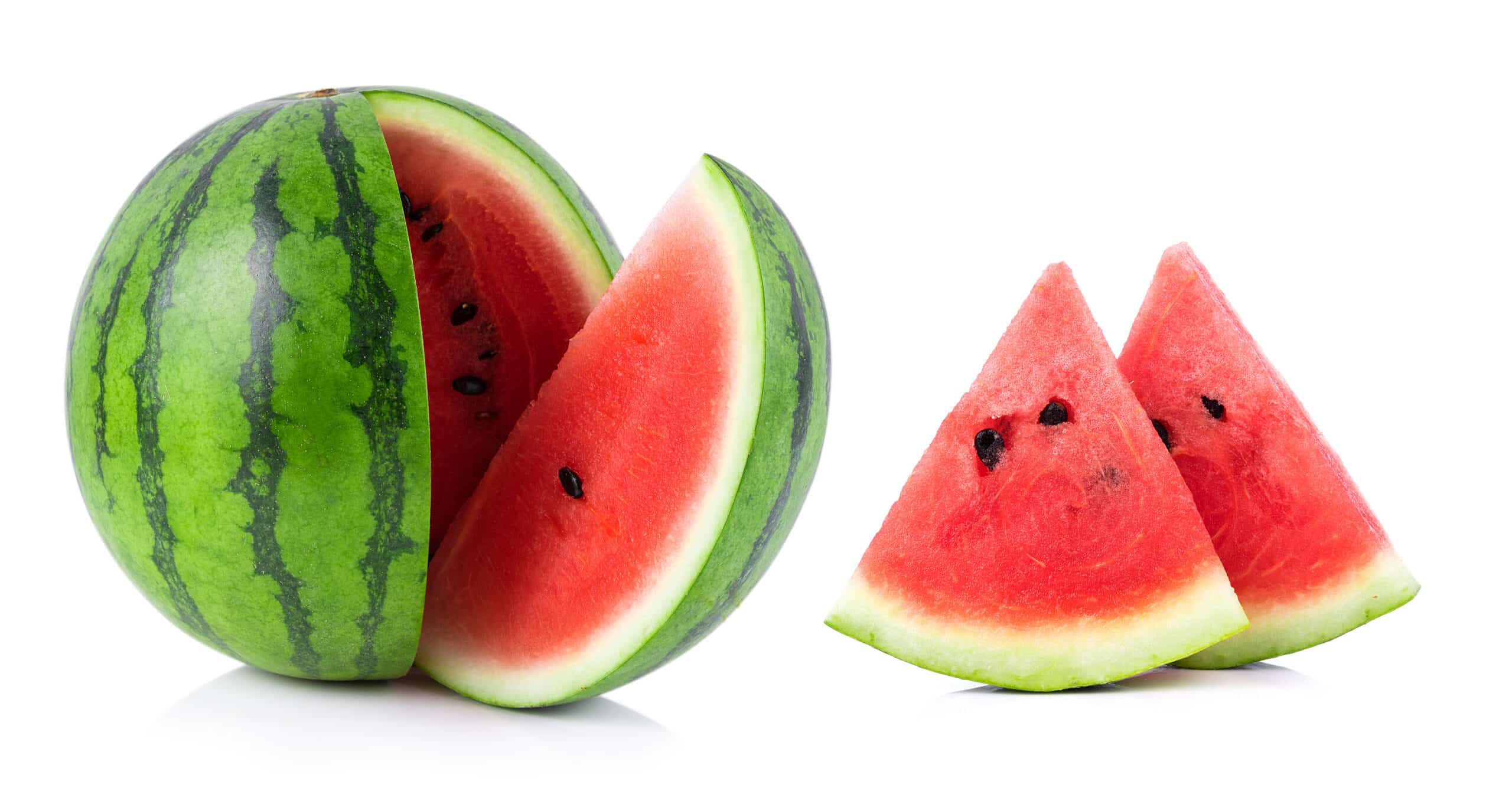A recent study published in Nutrients analyzing data from the National Health and Nutrition Examination Survey found that those who consumed watermelon on a regular basis had a higher quality diet, having higher levels of magnesium, potassium, lycopene, vitamin A, vitamin C, fiber, and other carotenoids. Additionally, watermelon lovers were also found to eat less processed sugars and to have lower levels of saturated fatty acids. These findings will be presented at Nutrition 2023, the American Society for Nutrition annual meeting that is being held in Boston from July 22-25, 2023.
A separate randomized, double-blind, placebo-controlled small crossover study also published in Nutrients conducted by the Louisiana State University involved 18 participants who were given watermelon juice supplements for 2 weeks to study how L-citrulline and L-arginine affect heart rate and the production of nitric oxide in the body. Findings revealed a protective effect on vascular function against high blood sugar levels.
“We acknowledge that while the sample size was small and more research is needed, this study adds to the current body of evidence supporting regular intake of watermelon for cardio-metabolic health. In addition to L-citrulline and L-arginine, watermelon is a rich source of antioxidants, vitamin C, and lycopene—all of which can help reduce oxidative stress and play a role in heart disease prevention,” says Jack Losso, a professor at the Louisiana State University’s School of Nutrition and Food Sciences.
Current dietary guidelines for Americans recommend a modest amount of 1.5-2.5 cups of fruit daily. This may not seem like a large amount, but many Americans are not meeting this goal, with at best half of adults and children getting the recommended amount of the daily serving.
This melon packs a powerful nutritional punch to go along with that sweet taste. Just one cup of diced raw watermelon contains 40 calories, 11.5 grams of carbs, 0.6 grams of fiber, 9.4 grams of natural sugar, 0.9 grams of protein, 0.2 grams of fat, 5% of the recommended daily value for vitamin A, 14% of the RDV for vitamin C, 4% of the DV for potassium, and 4% of the recommended daily value for magnesium. It is also a rich source of citrulline amino acids as well as anti-aging antioxidants like carotenoid, lycopene, and cucurbitacin E. All of these compounds combat inflammation and free radical damage that may lead to conditions like diabetes, heart disease, and cancer.
Watermelon can help you to reach the recommended servings of fruit with its refreshing and hydrating diet-friendly capabilities. Watermelon contains 80 calories for every 2-cup serving, and it is rich in vitamin C and vitamin B6. This yummy melon is also 92% water making it a perfect snack at a barbecue, while playing sports, relaxing at the beach, hiking, roller skating, in a smoothie, or as an addition to a salad. But why be limited, watermelon can now be enjoyed at any place and any time of the year thanks to the diversity of climates that enable year-round production so that you can include it as part of a balanced diet.




